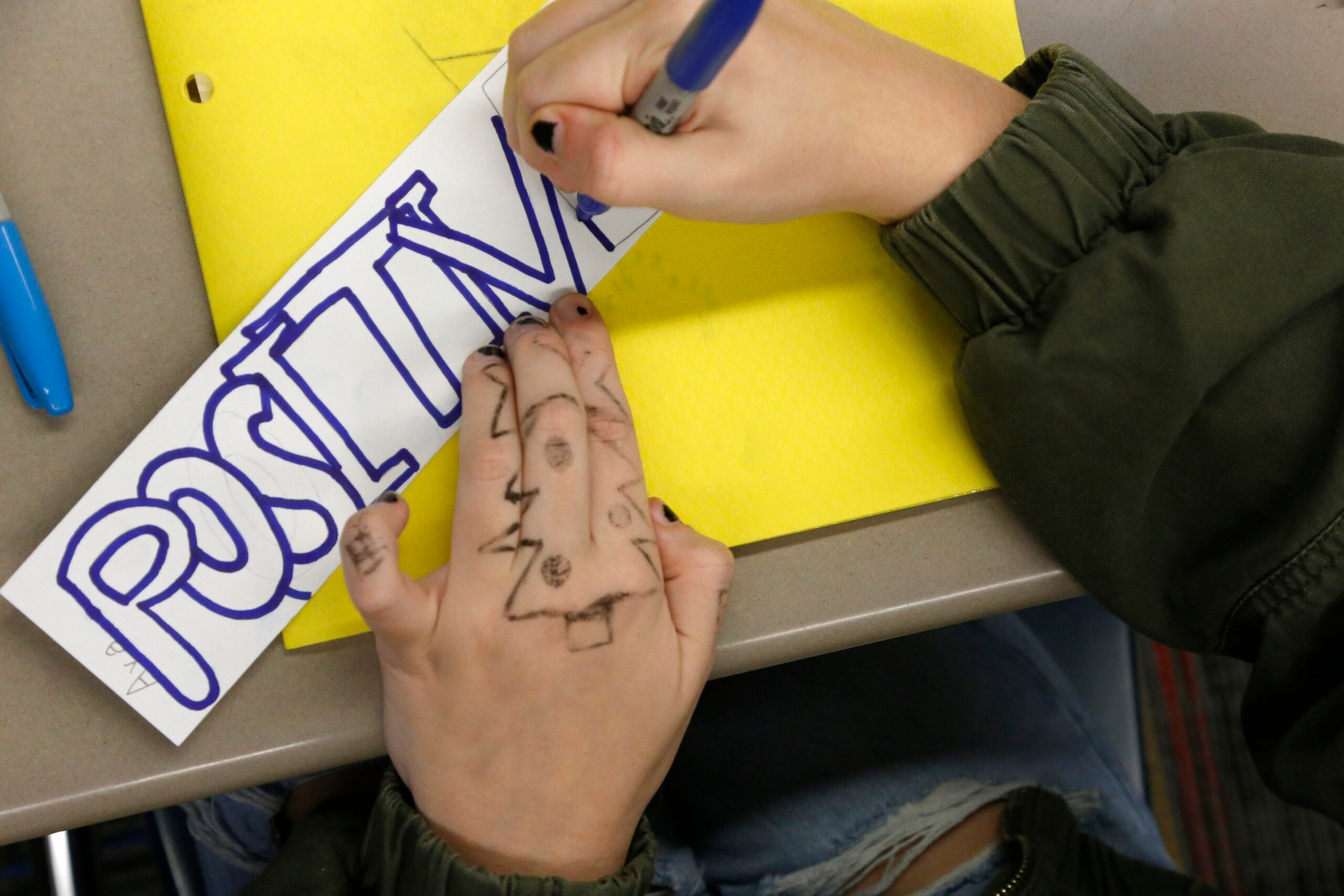Leaders of a mental health nonprofit in Eau Claire say the organization is in danger of shutting down amid dwindling financial support.
Like other mental health nonprofits in Wisconsin, Eau Claire’s peer-run Wellness Shack is struggling with money woes now that COVID relief funds are gone, grants are more competitive and private donations have declined.
The Wellness Shack lost over $50,000 in grant revenue and donations since the start of the pandemic, according to its leaders. Staff have been spending down their emergency fund to keep the doors open.
News with a little more humanity
WPR’s “Wisconsin Today” newsletter keeps you connected to the state you love without feeling overwhelmed. No paywall. No agenda. No corporate filter.
Bob Schrader, executive director of the Wellness Shack, organized a silent demonstration outside of the Eau Claire City Hall earlier this week. Members held signs that read, “Here you will find hope” and “Please tell the city council to fund us!”
“It’s inevitable. If the city doesn’t step in or the county doesn’t step in, we will be closed (by the end of June),” Schrader said.
Schrader and other members of the Wellness Shack asked the Eau Claire City Council for $50,000.
But Stephanie Hirsch, Eau Claire’s city manager, said she doesn’t see a path for the city council to give the group the money they are asking for. She said making changes to the annual budget midyear is challenging and there are many community organizations with unmet needs.
“It’s just so discouraging and heartbreaking to be in a position where we would like to be that safety net and to help, and we don’t have a way to do it that we can think of,” Hirsch said.
Wellness Shack helped 260 people in 2023
The Wellness Shack is a peer-run mental health recovery center offering seven different support groups free to members. Schrader says he’s seen the impact the groups have had on people’s lives.
“Their confidence improves, their self-esteem improves and they start living a normal life — even though most people would say they’re not normal because they have a mental illness,” Schrader said.
Schrader said the organization was turned down for 10 grants in the last three months. In December, they sent out an appeal letter asking for help to 160 local businesses, 40 local churches, and about 200 current and former members.
“We probably got $3,000, but it’s not enough. Our operating budget for the last few years has been $95,000 a year,” Schrader said. “It’s been a struggle.”
Schrader is worried if the Wellness Shack dissolves, it will leave a “void” of mental health services in the area.
Competitive grants putting mental health nonprofits in fragile positions
“We’ve been applying for grants every year only to get the letters saying, ‘There’s less donations being made to our foundation, therefore we got less money to give to people,’” Shrader said.
Other mental health nonprofits are also seeing smaller grants and fewer private donations. According to a report from a coalition of national nonprofit organizations, 2023 marks the third consecutive year with decreased donor participation.
The Racine Friendship Clubhouse is a peer run nonprofit where members with a mental illness practice daily living tasks and learn vocational skills. Program Director Kati Rognsvoog said since the pandemic, but especially in the last two years, grants from previously reliable sponsors are more competitive.
“A credit to the staff and the members here, we kind of work with what we have,” Rognsvoog said.
Republicans in Wisconsin’s state Legislature introduced a bill that would require the Wisconsin Department of Health Services to award $500,000 in grants each fiscal year to groups like Racine Friendship Clubhouse, but the bill has yet to pass.
Mary Kay Battaglia, executive director of the National Alliance on Mental Illness Wisconsin, or NAMI, said the pandemic brought mental health to the forefront.
“It was a very strong focus, but (now) we’re on the downswing of the pendulum of fundraising and contributions towards mental health organizations,” Battaglia said.
Battaglia suspects hospital mergers, insurance restructuring and staffing turnover have played a role in driving down support from sponsors.
COVID relief funds were helpful to some organizations in the short term. NAMI used the money they received to pay for a conference that was canceled due to the pandemic. The clubhouse in Racine used the money for a “desperately needed” kitchen remodel. The Wellness Shack was disqualified from the funding on a technicality.
‘Please help us’
Hirsch, the Eau Claire city manager, said the funding request from the Wellness Shack is related to the larger stresses on the health care system. She said the community is also struggling to adapt to the recent news that Hospital Sisters Health System and Prevea Health will shut down two hospitals and clinics in the region.
“It’s a similar experience of frustration and helplessness that we don’t have a silver bullet to address the needs that have been exposed by the departure of HSHS and Prevea from Eau Claire. And even the needs that existed before that,” Hirsch said.
Wisconsin Public Radio, © Copyright 2025, Board of Regents of the University of Wisconsin System and Wisconsin Educational Communications Board.







